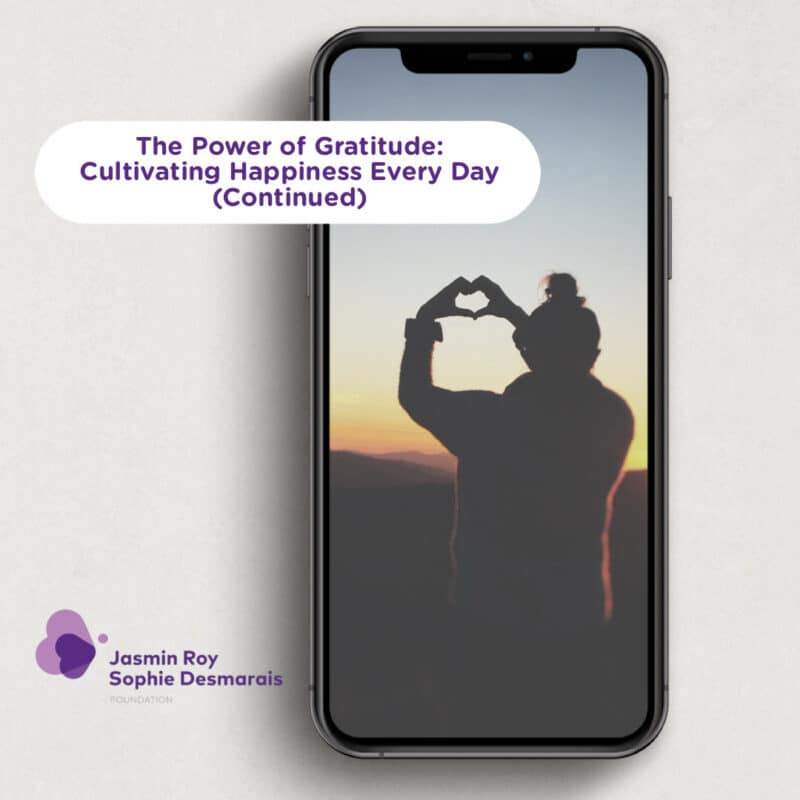In our text from last week, we discussed “The Power of Gratitude: Cultivating Happiness Every Day.”
This week, let’s delve deeper into the elements mentioned: 1- Understanding gratitude, 2- Its impact on mental health, 3- The importance of strengthening human relationships, 4- The gratitude/resilience alliance, and 5- The daily practice of gratitude.
First, gratitude is a feeling of recognition and appreciation for something or someone who has positively impacted our lives. Understanding gratitude, therefore, involves recognizing and appreciating the positive things in our lives, big or small, and the people who make them possible. Most importantly, it involves recognizing the value of what we have received and expressing that recognition authentically.
This is how one can: 1—develop a positive mindset, 2—improve our overall well-being and our relationships with others, and 3—help us appreciate the little things in life more.
Here are some essential tips for practicing gratitude daily so that it has a positive impact on our mental health, helps strengthen our bonds with other human beings, and promotes resilience:
1. Practice mindfulness: Be aware of what’s happening around you and your feelings at each moment. Notice the little things that bring you joy or comfort.
2. Reflect on blessings: Take time regularly to think about what you have in your life. This could be relationships, opportunities, skills, or experiences. Consider how these positive elements have influenced your life.
3. Practice active gratitude: Don’t wait for extraordinary circumstances to feel gratitude. Actively look for small joys and opportunities to “give thanks.”
4. Express your appreciation: Don’t hesitate to express your gratitude to others. Through words, gestures, or actions, showing appreciation strengthens bonds and spreads positive feelings.
5. Positive perspective: View challenges and setbacks as learning opportunities and growth. Gratitude can often be found even in difficult moments. Seeing the positive is a form of resilience, which translates as the ability to bounce back after a setback.
6. Cultivate patience: Gratitude can take time to develop, especially if you’re not used to practicing it regularly. Be patient with yourself and continue working on your mindset.
7. Practice diligence: Make gratitude a daily habit. This can be journaling, meditation, gratitude, or just a few minutes of reflection each day.
8. Be authentic: Your gratitude must be sincere and from the heart. Pretending to be grateful will not serve you in your endeavor. Dive in with all your heart!
Here, then, is a summary of tips for nurturing a positive mindset, improving our overall well-being and our relationships with others, and leading us to appreciate the little things in life more, even shocks and so-called “negative” emotions, which allow us to learn and grow, and sometimes even to rise from the ashes.
What are you grateful for after reading this article?





